Imagine owning a cozy home in Italy for just one euro.
It sounds like a dream, right?
But what’s the real story behind these incredibly cheap houses?
Are Italy’s 1-euro houses a dream come true or a nightmare waiting to happen?
We went deep on answering ONE question!
What hidden costs are lurking behind such a wonderful prospect?
Because more often than not, those are NOT normal real estate purchases.
Maybe you, just like me, wonder why Italy’s 1 euro houses are so cheap.
There are two explanations.
The official one
and the “other” one.
The official one is that many small towns in Italy, especially in rural areas, have been facing depopulation for decades.
As families moved away in search of better opportunities in richer Italian cities like Turim or Milan, or even abroad, they left behind a trail of abandoned homes.
Many €1 homes are properties abandoned by family members who inherited them under Italy’s forced inheritance system, and do not wish to pay for their upkeep because none of them want to live in these small cities.
Local governments took over these properties because of unpaid taxes, debts, etc.
These empty houses became a burden. They symbolized a fading community and a crumbling local economy.
To revive these towns, local governments decided to sell abandoned houses for just one euro.
The goal? Revitalize the local economy and prevent them from becoming ghost villages.
This is how the program of 1 Euro Houses started independently in multiple places
In towns like Mussomeli and Cammarata, in Sicily.
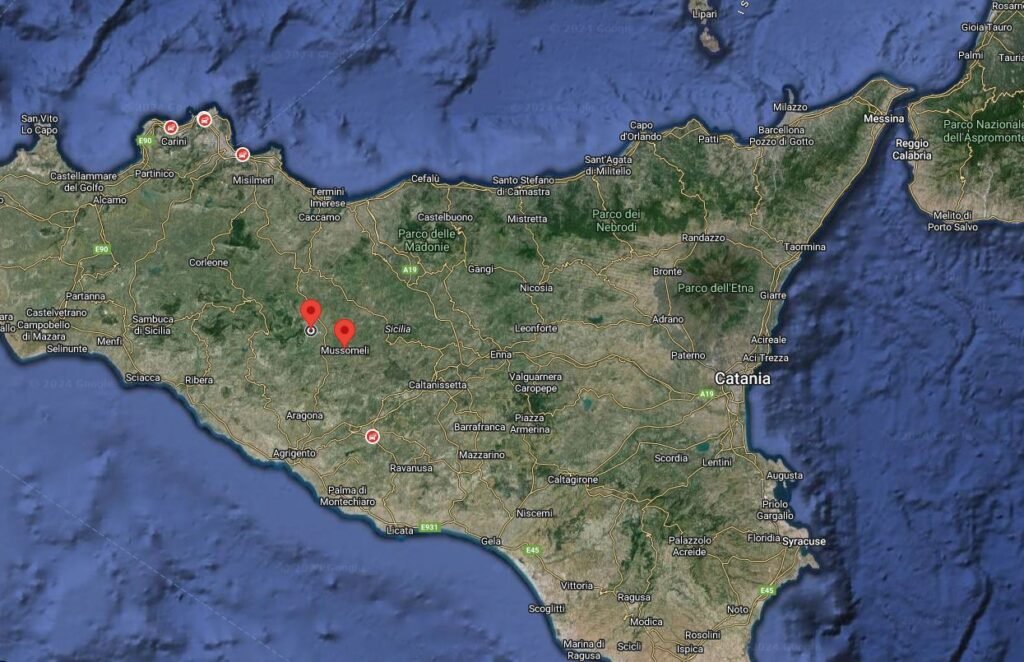
Ollolai and Nulvi in Sardinia.
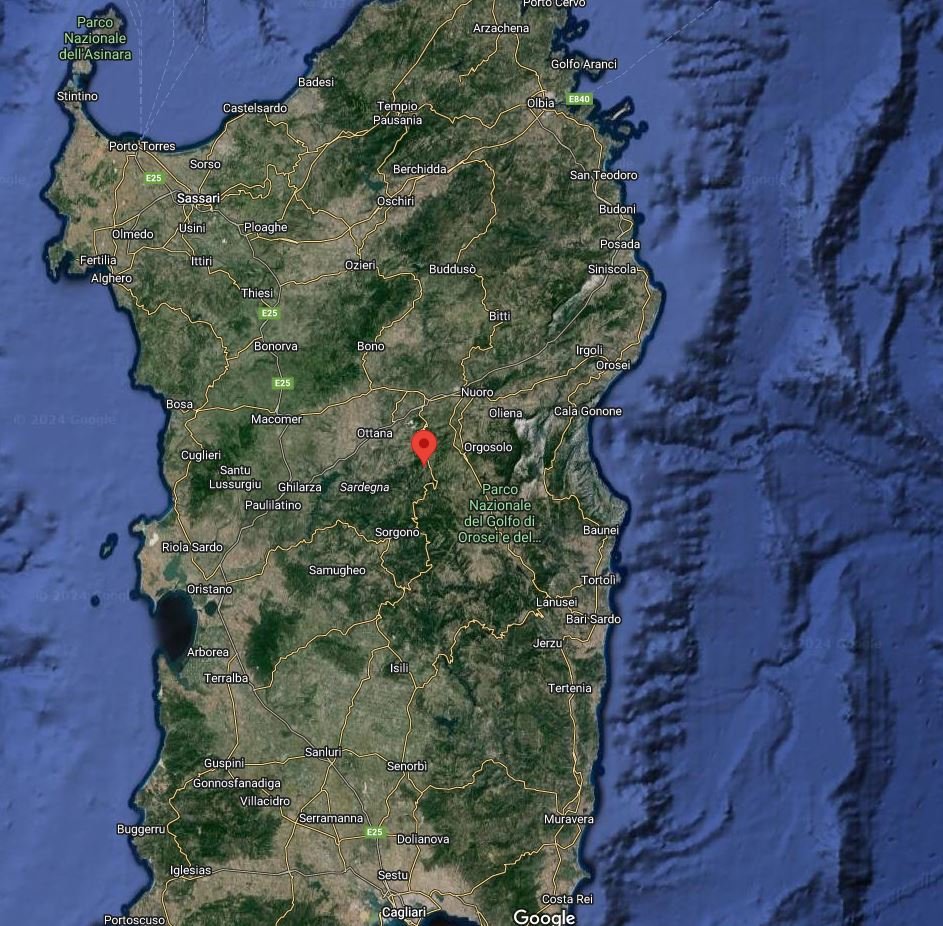
Laurenzana in Basilicata.
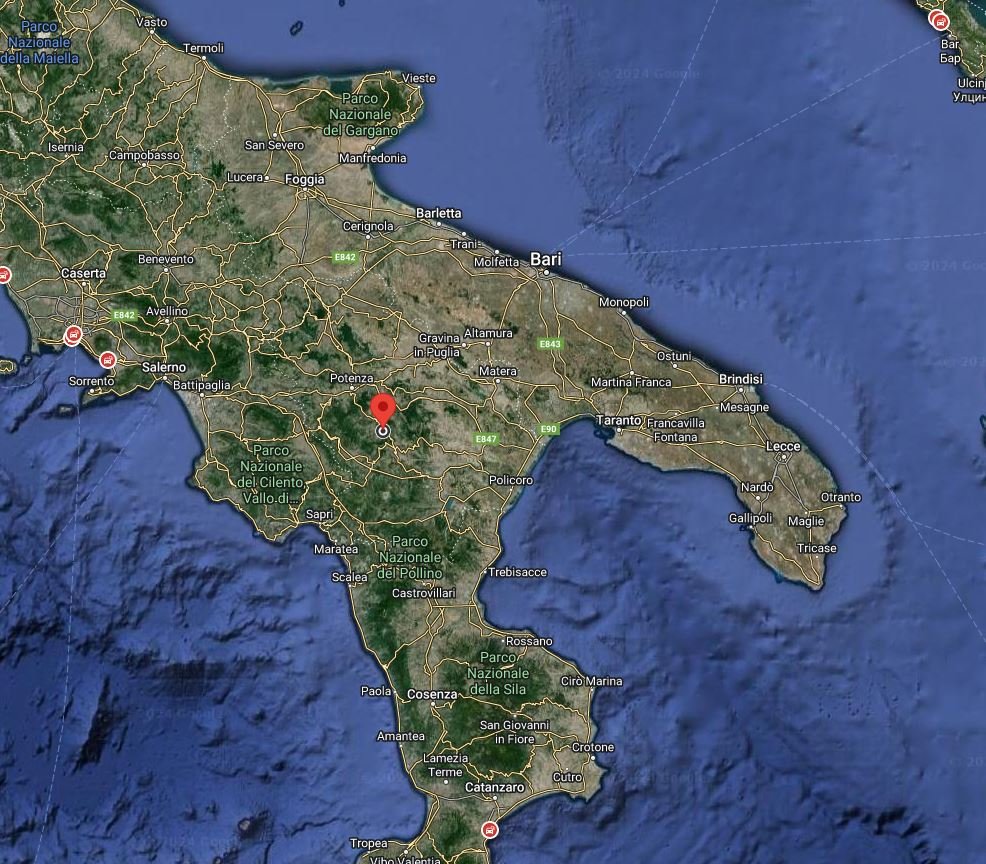
Bisaccia in Campania.
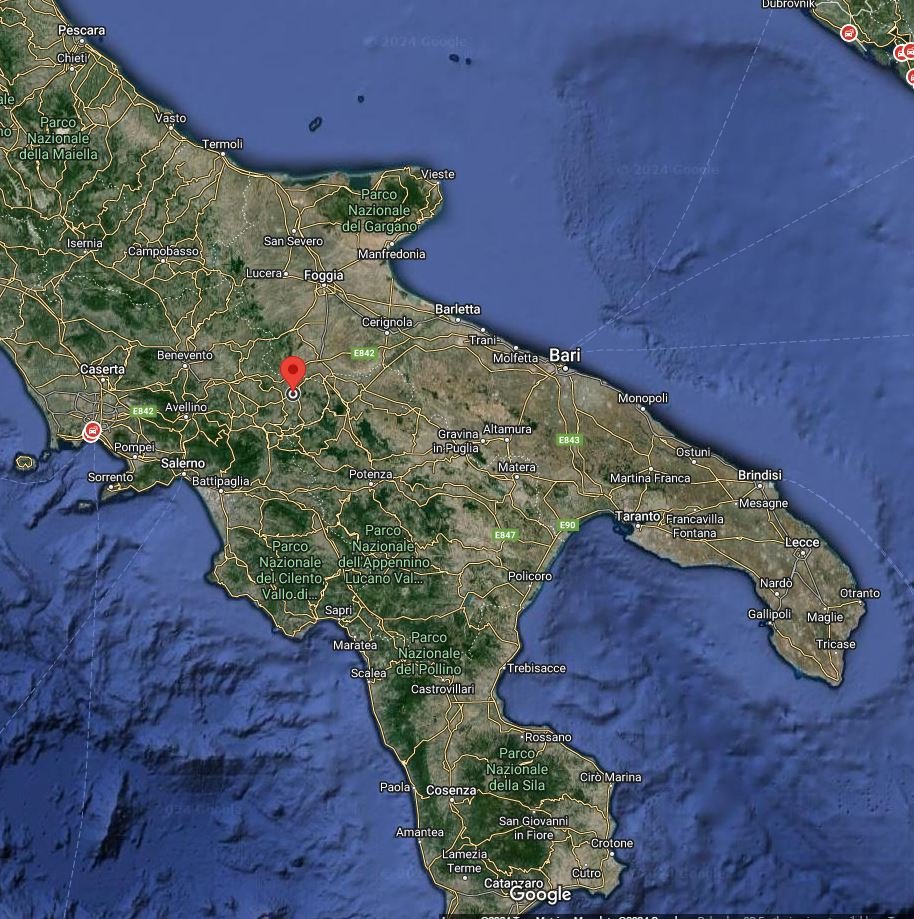
Or Cinquefrondi in Calabria.
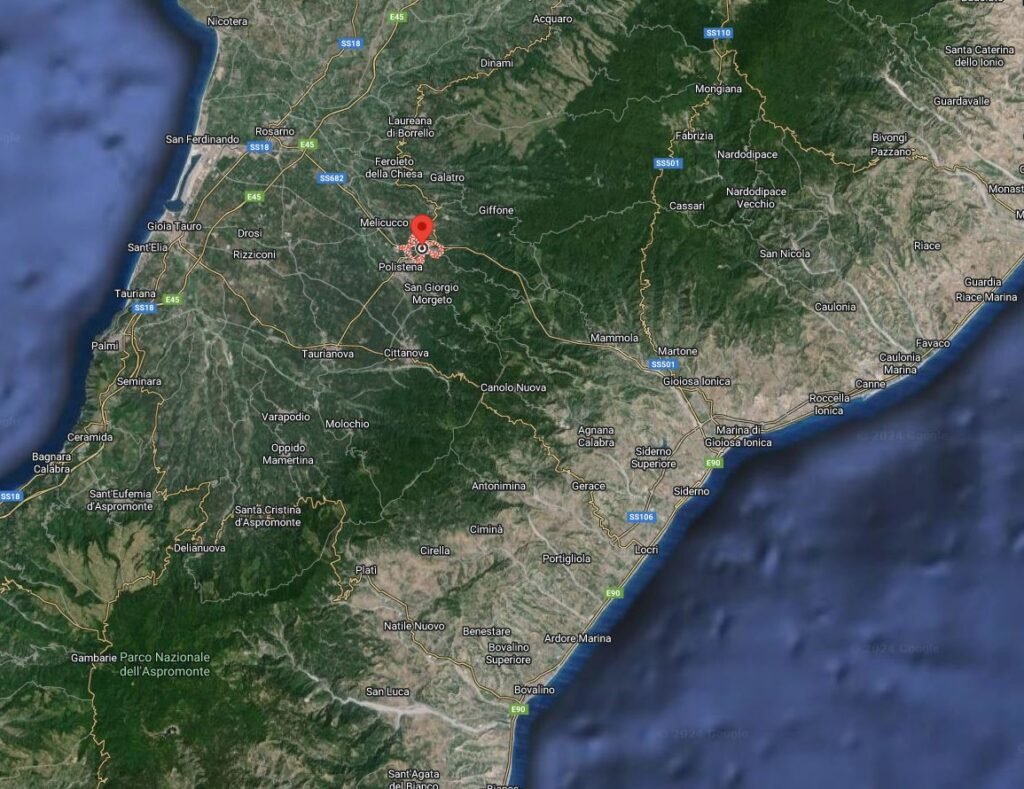
Wait… Did you notice something?
Look again at the maps, and tell me if you see a pattern.
Saw it? Because this pattern might be the first clue to the real reason these houses are available for such low prices.
I am talking about the fact that all these towns are in the middle of their provinces far from the coast, and in most cases, far from any major city, with little to no direction connection by land to large urban centers.
They are small, and often they have very little infrastructure.
To be fair, some of these towns have more infrastructure than others, like Mussomeli, which has a large hospital.
That is not always the case.
BUT… What kind of condition are these 1 euro homes really in?
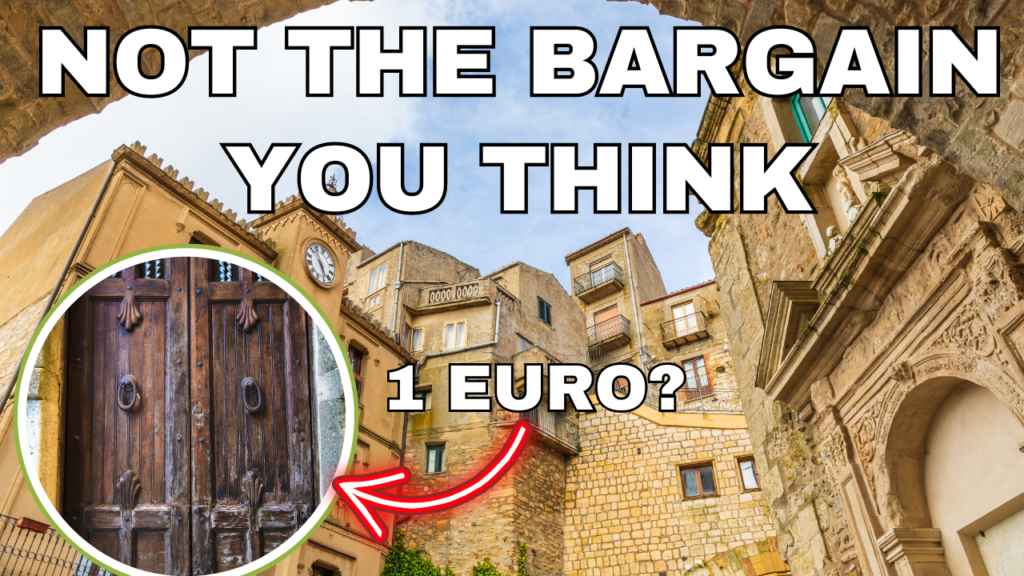
Imagine buying a house for 1 euro, only to find out it’s falling apart.
This is what a person who went through this process told us:
“These homes are in some serious states of disrepair and often uninhabitable. You have to invest at least 18,000 into it. Getting things like electricity and internet set up is a nightmare”
Ok, but that should not be a surprise, right?
Who would expect that a house for 1 euro would be a ready-to-live place?
Of course, it would need some renovations, BUT-(And here is where the problems that most people don’t know start)-the small print of most agreements to purchase the 1-Euro houses has some very trick rules about the renovations.
The first of all is the red tape. Many of these houses are historical houses, so you might need a lot of permits to renovate them.
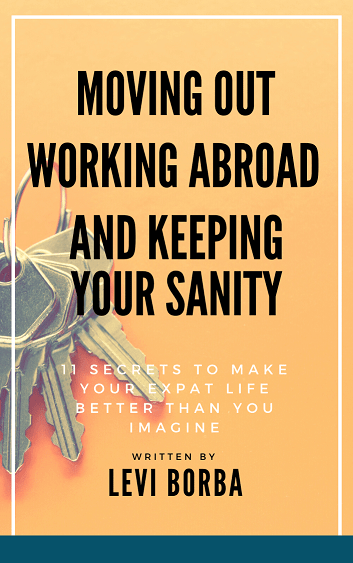
A local explained to us how bureaucracy works there:
“Italy has the most red tape to get ANYTHING done coming in second only to Greece; the inventors of bureaucracy. You’ll be waiting in governmental offices for weeks or months to get approvals on the smallest things.”
Most municipalities require a detailed renovation plan to be submitted. This plan must be approved before any work can begin.
Some municipalities may require a security deposit, something around €5,000, to ensure the buyer’s commitment to the renovation.
Then you will also need other permits. MANY other permits.
For minor modifications, a CILA (Comunicazione Inizio Lavori Asseverata) is needed, which involves less bureaucracy but still requires a professional’s certification.
More significant changes require a SCIA (Segnalazione Certificata di Inizio Attività) or even a full building permit.
Things like painting internal and external walls or ceilings might need authorization from the Superintendence of Architectural Heritage
This is what Francesco, an Italian familiar with the program, wrote:
“Price for renovations may vary a LOT. The minimum is around 30 thousand euros, but it is not unusual to go up to 80 thousand or more for a 3-story building. That’s because in Italy building codes are STRICT”
But this is not even the hardest part.
You will have DEADLINES to finish this renovation.

If you don’t finish in time, there are penalties, and they are heavy – although they vary from one municipality to the other.
But before we talk about these penalties, I’d like to ask a small favor: if you enjoy this episode, please hit the like and subscribe buttons.
So, what happens if you can’t complete the required renovations?
In Cinquefrondi, in Calabria, if you don’t finish the renovations from your approved plan in 3 years, you will be fined up to 20,000 euros.
In Laurenzana, Basilicata, if you don’t finish all the renovations before the deadline, you will lose the property and everything you invested in it.
So, in a way, it’s correct to say that when you buy a 1-euro house, you’re paying for the ‘right’ to renovate it.
Let’s say you beat all the bureaucracy and red tape, there is still the problem of finding a local contractor, as a local told us:
“Assuming you get all that done, you’ll be hard-pressed to find contractors to work on the place – because it’s likely to be remote. Even if you do, the stereotype of ‘Domani, domani!’ (Tomorrow, tomorrow!) Is very much true. Nothing ever gets done on a schedule. Ever. Everything can wait until tomorrow.”
And do you know why I said “Local contractor” and not just “contractor”?
Because the need for a “Local contractor” is another issue…
The contract you sign in the 1-euro house program in some municipalities DEMAND that you give preference to local contractors. Since these towns are small, the number of contractors is small, so they can inflate the price since you don’t have much of a choice.
Said that, this is not the case for every town, and many of them allow you to hire however you choose and offer the best price to renovate the building.
There is one more tricky thing: in many municipalities, like Mussomeli in Sicily, there is a deadline to finish the project, BUT…
There is also another, even more treacherous, deadline.
You also have a deadline to START the renovations…
…and it is as short as 2 months after the authorities authorize your renovation plan.
The problem is that there is a chance that no contractor will be available in such a small village to work on your house on such short notice.
An Italian told us about that:
“the local Sicilian contractors know that you have to hit repair/reconstruction deadlines. You’ll definitely get charged the foreigner price.”
Some of these villages also have no proper roads leading to and from the cities where the contractors are located,
It is also not uncommon that during winter, some of these villages that are located on higher plateaus, have their access blocked by heavy snowfall.
Troina, a city of 8500 residents in Sicily, is located at more than 1100 meters high. During the winter a few years ago, they had so much snowfall that the city access was blocked and the mayor asked for help from the Italian army.
All these obstacles, both natural and woman, result in many 1-euro house buyers missing their deadlines.

So…
Are there any success stories of people who bought 1-euro house?
Yes, of course, and in less than 2 minutes I will talk to you about some of these cases, so keep watching.
Now, a lot of people are attracted to the 1 euro house program for other purposes.
The first idea many people have is to use it as an investment, believing that the price to buy a 1 euro house and renovate it is less than what they would spend buying a ready-to-live one.
But often this is not the case, and the risks are also much higher.
This is what an Italian who knows the program told us:
“As an investment, it’s gonna be a bloodbath regardless. Retooling an old farmhouse as a fancy B&B or resort for upper-class tourists sounds appealing, til you realize you’re still in Bucodiculo Superiore, 30 miles away from the nearest city.”
(Bucodiculo is not a real city, is just an example name he used)
Some potential buyers also think that the 1-euro house program is a good way to have some cheap properties to rent on Airbnb, and then make extra money.
First of all, since most of these houses are in isolated villages far from major urban centers or tourist attractions, it is very unlikely they have a considerable demand from Airbnb users.
The other issue, and this is the one that really turns this Airbnb idea into a bad plan: many municipalities REQUIRE that you live in the 1-euro house you buy once the renovations are complete.
And that makes sense, since one of the official reasons for the 1-euro house program is to bring new residents to shrinking villages.
Other potential buyers think that the 1 euro houses are an easier way to obtain a residence permit in Italy. This perception has attracted a diverse group of international investors looking for a gateway to European living. However, while the allure of buying property in Italy at such a low cost is undoubtedly tempting, potential buyers must navigate the complexities of legal requirements and property conditions. As a result, thorough research and due diligence become essential steps in the process. Many are drawn to the charm of these affordable homes in southern Italy, where picturesque landscapes and rich cultural heritage provide an attractive backdrop for investment. Additionally, while the prospect of renovating these properties may seem daunting, skilled local artisans are often available to assist, making the transformation more feasible. It’s essential for buyers to connect with local experts who can provide insights into the market and help navigate any bureaucratic hurdles.
But not… You can’t get a residence permit on the basis of buying these 1 euro houses, you’d need to be an EU citizen or qualify for a residence permit in Italy through other means.
If you read until now, you might think the 1-euro house program has so many rules and problems that it’s not worth it.
However, that is not always the case – sometimes, it is worth it.
This is what a local told us:
“Basically it’s a good deal only if you’re a wealthy retired foreigner with money to burn to renovate (more like rebuild from scratch) an old cool building in rural Italy to have as a buen retiro”
In fact, there are multiple stories of people who indeed succeeded and are happy with their 1-euro houses and all the processes they went through to make it a nice place to live.
There is the famous case of a 1-euro house in the town of Salemi, Sicily, that was renovated so masterfully that it became a documentary from BBC.
Another successful story is the one from Massoud Ahmadi and Shelley Spencer, a couple from Washington, in the US, who bought and renovated a 1-euro house in the province of Agrigento, also in Sicily.
It’s possible but requires good planning, attention to contract details, and possibly a local lawyer.
BUT… there is another important question.
How do the local communities react to foreign buyers?
This is what an Italian told us:
“if you don’t speak Italian, you’ll be fairly outta luck for most things given English isn’t widely spoken outside of the bigger urban areas. I’ve found English to be spoken in Italy MUCH less than a majority of all the European countries.”
And this is something I ALWAYS stress on nearly all my videos.
But it is especially important for this case.
If you plan to move ANYWHERE in Italy, but especially to small towns, get ready to learn some Italian language, or even better: the Sicilian dialect (if you are moving to Sicily).
It is NOT that difficult, and once you start to speak it, your life will be so much better. The difference in your daily interactions with the locals is mindblowing. The method I use to learn new languages which I recommend is this one (by using this link we both get a Bonus!): https://www.lingq.com/?referral=LevideSouza
Now, Sicily is not the only region in Italy where you can have a good life for a low cost of living. I listed the pros and cons of retirement in Italy here. Take a look and get surprised. In addition to its affordable lifestyle, Italy boasts stunning landscapes and rich cultural heritage. Many expats are drawn to the charming Italian properties for sale, which offer a unique blend of history and modern amenities. Discovering these hidden gems can make your retirement in Italy not only enjoyable but also an enriching experience.
Levi Borba is the founder of expatriateconsultancy.com, creator of the channel The Expat, and best-selling author.. You can find him on X here.




